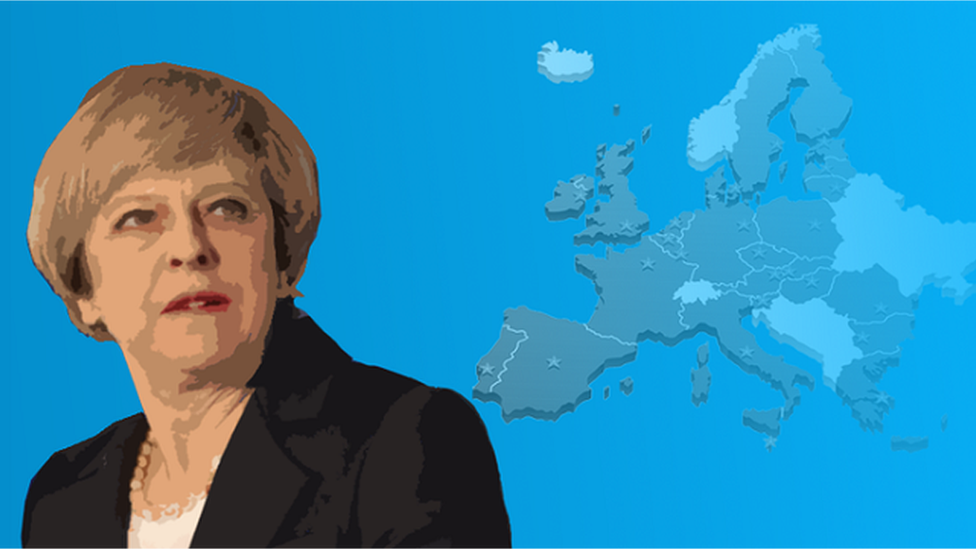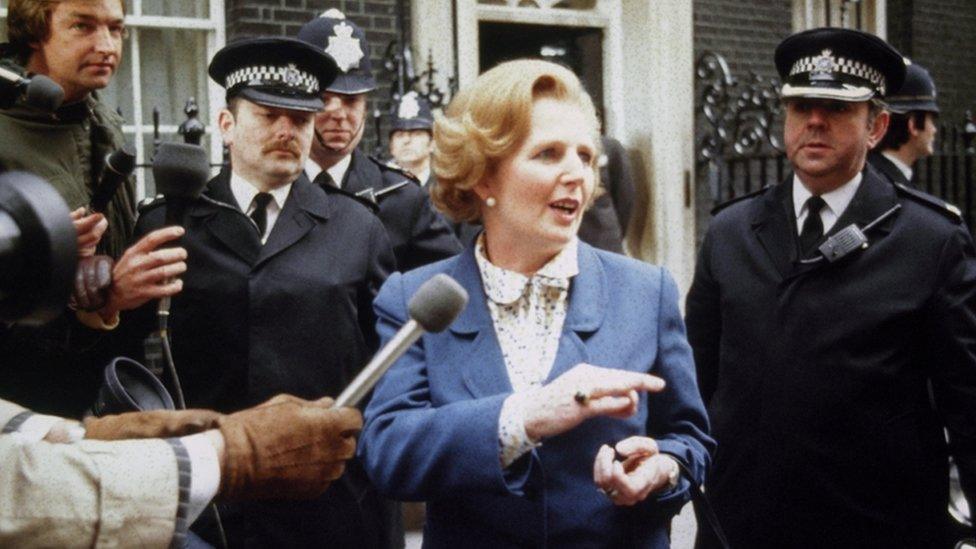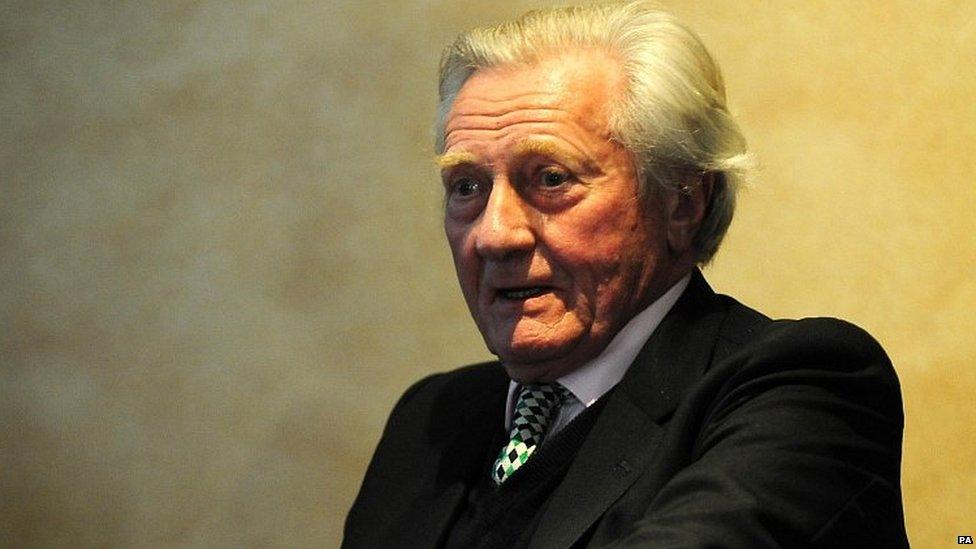Guide to the parties: Conservatives
- Published

Theresa May called the election because she wants a democratic mandate of her own to pursue what will almost certainly be very tough and complex negotiations with European leaders over the UK's exit from the European Union.
Potted history:
Formed in the 1830s as a right-of-centre party. In favour of capitalism, free enterprise and minimal intervention by government.

Margaret Thatcher was a controversial and transformative leader
Dominated British politics in the 20th Century, holding power for 57 years. Margaret Thatcher's administration (1979-90) had arguably the most profound impact, introducing a range of free-market reforms, and limiting the power of the trade unions.
The party spent 13 years in opposition following the 1997 landslide achieved by Labour's Tony Blair, but regained power as the senior partners in a coalition government with the Liberal Democrats under David Cameron in 2010.
Where are they now?
The largest party in Westminster with 330 seats. Against expectation, David Cameron achieved a majority in 2015 when nearly all polls suggested another hung parliament. However, he resigned just over a year later after losing the referendum vote on whether the UK should leave the European Union.
As of December 2013, the last time figures were published, the Conservative Party had 149,800 members.
Key players:
Prime Minister Theresa May. She may have emerged as leader only after her rivals fell by the wayside in rapid succession, but in 10 months, helped by increasingly glowing personal opinion poll ratings, she has stamped her authority on the party, and heads into the election as the most secure leader since Mrs Thatcher in her pomp.
It hasn't all been plain sailing - the rapid U-turn on plans to increase national insurance contributions for the self-employed announced in the Budget raised eyebrows. But Mrs May has set herself up as the calm and considered voice of strength and reason, and the key to the Tories' electoral success will rest squarely on whether the public is prepared to take her at her word.
Away from Mrs May, Foreign Secretary Boris Johnson has a remarkable ability to grab headlines. His critics think he has a similarly remarkable ability to put his foot in it.
Ruth Davidson has gained credit for leading a revival in Conservative fortunes in Scotland.
Leader's philosophy in a quote:
"I'm not a showy politician. I don't go drinking in parliament's bars. I don't wear my heart on my sleeve, I just get on with the job in front of me and you can judge me by my record."
What the critics say:
"Instead of being open and willing to listen to differing views and incredibly complex issues, she's retreated into government by mantra: 'Brexit means Brexit', 'no running commentary', 'no deal is better than a bad deal' - bland phrases designed to shut out dialogue," Sir Keir Starmer, shadow Brexit secretary.
What do they hope to achieve?
Theresa May wants a resounding majority to strengthen her hand in upcoming Brexit negotiations with the European Union. She is also thought to be keen to ditch some of the manifesto commitments of her predecessor, which have tied her hands.
Strong suit?
Brexit. The public voted to leave the European Union, and although Mrs May described herself during the referendum campaign as a "reluctant Remainer", she has been equally decisive in styling herself as the one domestic political leader who can achieve that aim.
Where do they stand on Brexit?
For it. Mrs May favours a "clean" Brexit. The UK would leave the EU single market, and the customs union, which Brexiteers argue is necessary to allow the UK to strike trade deals with other countries around the world.
The vast majority of Conservative MPs backed her position, although a few, such as Ken Clarke, Anna Soubry and Nicky Morgan continued to bang the Remain drum, along with veteran Europhile Michael Heseltine.

Lord Heseltine believes the UK will allow Germany to dominate Europe by pushing ahead with Brexit
But, if press reports are to be believed, Mrs May's tough stance hasn't gone down well with her EU counterparts. EC President Jean-Claude Juncker is allegedly sceptical that a deal can be reached any time soon.